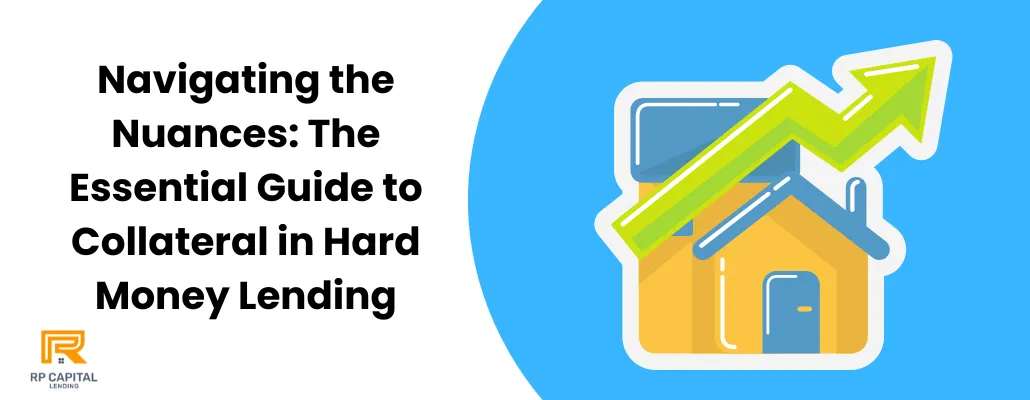Have you ever wondered how real estate tycoons manage to fund their projects swiftly, even when their credit scores are less than stellar?
The solution resides within the dynamic realm of hard money lending – a domain where collateral reigns supreme. In this intriguing world, the value of your assets holds the key to accessing the financial resources needed to fuel your real estate ambitions.
The Essence of Collateral in Hard Money Lending
In the landscape of hard money lending, collateral is not just an asset, it's the cornerstone of the entire lending process. This form of lending primarily focuses on the value and potential of the property you're offering as security, rather than your creditworthiness. It's a tangible assurance for lenders, ensuring that they have a form of repayment should things go south. Understanding the value of your property and how it impacts your loan terms is crucial for any prospective borrower.
Risk Assessment and Collateral Value
One of the most critical aspects of hard money lending is how lenders assess risk and determine the value of collateral. Unlike traditional banks that delve deep into your credit history, hard money lenders evaluate the potential resale value of the property. They consider factors like location, condition, and market trends. This assessment directly influences the loan-to-value ratio, which is a key factor in determining the loan amount you're eligible for.
The Impact of Collateral on Loan Terms
The type and value of your collateral significantly influence the terms of your hard money loan. Higher-value collateral often leads to more favorable loan terms, including lower interest rates and more flexible repayment schedules. It's vital for borrowers to understand how their property's value can be leveraged to negotiate better terms, making the deal more beneficial for their investment goals.
Diverse Types of Acceptable Collateral
Hard money lenders are known for their flexibility in accepting various types of collateral. While residential and commercial properties are common, some lenders might also accept land, industrial properties, or even unconventional real estate types. This flexibility opens doors for a wider range of investors, especially those dealing with unique or niche properties.
The Crucial Role of Appraisal in Collateral Evaluation
An accurate appraisal of your property is paramount in hard money lending. This process not only determines the fair market value of the collateral but also helps in identifying any potential issues that might affect its value. Borrowers must ensure that they get a credible and thorough appraisal, as this significantly influences the lending decision.
Conclusion
Understanding the role of collateral in hard money lending is crucial for anyone venturing into this financing avenue. It's not just about having an asset to pledge but knowing its true potential and leveraging it to your advantage. This knowledge empowers borrowers to make informed decisions, negotiate better terms, and ultimately succeed in their real estate endeavors.
FAQs in Hard Money Lending
1: What is the main difference between hard money lending and traditional bank loans?
The main difference lies in the focus on collateral value over credit history. Hard money lenders prioritize the property's value, offering faster approvals and more flexible terms.
2: How quickly can I get a hard money loan?
Hard money loans can be processed much faster than traditional loans, often within a few days to a week, due to less stringent underwriting processes.
3: Are interest rates higher for hard money loans?
Yes, generally, hard money loans have higher interest rates than traditional loans, reflecting the higher risk taken by the lender.
4: Can I get a hard money loan with bad credit?
Yes, it's possible to secure a hard money loan with bad credit, as the focus is on the value of your collateral, not your credit score.
5: What happens if I default on a hard money loan?
In case of default, the lender can foreclose on the property used as collateral to recover their investment.



